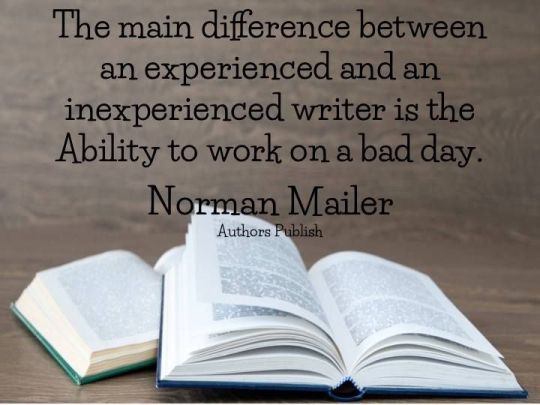
Since July
2015 was probably the most difficult month I’ve ever had in writing in my
nearly three-year-long “professional” writing career, I thought I’d center my
post this week around how I managed to survive and cope with this terrible
month-long writing “drought”.
First, let
me define what I mean by a “writing drought”. This is not the same thing as
Writer’s Block. In fact I dare to say I do not suffer from Writer’s Block. That
kind of thing tends to happen when there is a lack of planning around your
project, but all that is for another blog post, so let’s stay on-task! What I
mean by a “writing drought” is: a period of time of indeterminable length where
there is no motivation to write. Not
the usual resistance we writers often feel, either. Not the “*grumble*grumble*
oh but I don’t feel like writing
today. Can I maybe just look at cute cat memes instead?”. No, this writing
drought is like the mother of all resistance. There is definitely no muse to be
found anywhere during this drought, and you cannot for the life of you summon
enough energy or gumption to make your own inspiration as per usual, either.
You have,
in a nutshell, nothing to work with.
And it’s not the story’s problem. It’s your
problem. This is actually worse than Writer’s Block. Because a Block can be
cured. If the story has stopped, there is a problem with the story, and
problems with stories can be fixed.
But when
there’s a problem with you, the
author … then the fix becomes so much more difficult.
It can be
utterly exasperating. Every day you know you must write. You even want to write. You know the story. It’s
just … you sit down to actually write and every word feels like an agony, an
insurmountable effort to travel the distance from your mind to your arms to
your hands to your fingers to keys. Even a scarce 100 words completely exhausts
you. All you want to do is throw up your hands and give up, crawl under the
covers and sleep away the remains of any desire you ever had to be an author.
But.
You are a
writer. And so, you return to your keyboard day after day and hour after hour
and crawl through the misery that is this writing drought. Maybe from habit.
Maybe from sheer will. Maybe because you can’t stand the idea of doing anything
else with your life and absolutely refuse to let the dream die along with your
motivation.
But it’s
still very much not fun when this
happens.
So is
there any way to cure it?
I’m not
sure. I will, however, share my own coping mechanisms with you, in the hopes
they might provide a survival kit for you when you find yourself stranded in a
similar writing drought. I wanted to give up entirely several times during the
month of July. But the bottom line is that I did not, and here is how I managed
to hang on:
I examined my project to be sure I
loved it. You
should never be bored with your story, nor dread working on it (resistance is
normal, dread is another matter). If either of these things are happening, that
could be the cause of your writing drought. Give your project some good hard
thought and determine if this is the case. And if it is, think about what you
can do within the story to make it exciting and worthwhile for you to write
again. Remember, if you’re bored and
disinterested, your readers will be too! Solution:
I mildly tweaked my plotline to better appeal to my own interests.
I examined my life to see if I could
cut back on unnecessary tasks. If you have a lot going on at the moment, or are dealing
with some pretty major events or crisis, that’s probably the cause of your
writing drought. There are many life happenings and tragedies you have no
control over, and if one of these is messing up your writing mojo, forgive
yourself, really. These are the acceptable excuses for not writing. Give
yourself some time and some breathing room to cope with those first, then
return to your writing. Solution: My dog
of 16 years passed away mid-July. I gave myself a few days off and didn’t even
think about writing. If you are just super busy and are having trouble
concentrating on writing among all the other things you have to do, attempt to
cut back on some those activities, even if you really enjoy them. Decide how
important writing is to you, and prioritize accordingly. This will mean
sacrifices. Get over it.
Solution: I cut housework back to a
minimum. I minimized my social outings. I said “no” to a few opportunities, and
let other parties know up-front I wouldn’t be able to take advantage of those opportunities
until August, at the earliest.
I started writing sessions with a
fresh brain.
It has been proven that your ability to make decisions decreases with each
decision you make in a day, with your quota apparently resetting each morning.
It’s possible you are just mentally exhausted by the time you sit down to
write. This is why so many authors tend to wake up at the wee hours of the
morning to write. You may not consider yourself a morning person, but neither
did I, and as it turns out – I love waking up early to write! If early morning
writing isn’t feasible, plan out as many decisions as you can the evening
before. Plan what you’re going to wear, what you’re going to eat, and make a
list of any tasks you need to do the next day. Then you can conserve your brain
power throughout that day for your writing time. Solution: I was up at 5:30am as often as possible to write.
I faked it till I made it. If you are stuck in a true writing
drought, then cutting back your activities, being excited about your project,
and starting fresh won’t snap you out of it. Which will make the frustration so
much more frustrating. But, having a project you are genuinely looking forward
to working on (even if you sit down and nothing will come out), making room in
your life to work on that project (even if you mostly just sit there and swear
at your monitor), and sitting down to work on it while your brain is empty and
fresh and ready to go (even if then nothing will come out) will create a path
of least resistance and will make the return of your motivation and writerly
spirit that much easier when it finally happens. So, while you wait for this
terrible drought to pass (and it will, eventually), just fake it. Keep showing
up. Keep putting butt in chair and fingers to keyboard. Keep squeezing out
those few hundred words, or whatever you can manage. At some point the routine
will save you, and bring you back to your full writerly potential.
I can feel
the mojo coming back now, finally, after an entire month of missing it. It
feels like it’s been an eternity. It feels like July 2015 was a hot mess of a
month, and it was. My dog died, my cat got bitten by something and had to go
into the vet for surgery, my kid got sick and had to go to the doctor, our air
conditioning broke and it was 95 F with 90% humidity, I broke my cell phone and
had to replace it, I lost and then found my Kindle, we attempted a float trip
with friends that started with us staying in a “murder cabin” and ended with us
not being able to float and going home early ….
Needless
to say, I did not accomplish all of my writing goals that month, but despite
everything, I did manage to write
over 6000 words towards two different projects. The fact that I managed that much
writing despite it all, and despite my complete lack of desire to do so, is …
well, it’s hard to wrap my head around it.
But that’s
the point. Do what you can to help yourself out, and then just keep showing up.
In the
end, you won’t be disappointed.
And
through it all, remember … every writer goes through this now and then. Even
famous ones. Even Ernest Hemingway:
“There is no rule on how to write.
Sometimes it comes easily and perfectly; sometimes it’s like drilling rock and
then blasting it out with charges.”
Sticking
with it to the best of your ability, even through the bad days, is what
separates the writers from the wannabes. That’s what separates those
who ultimately make it from those who
ultimately give up. So cling to
Norman Mailer’s statement that “The main
difference between an experienced and inexperienced writer is the ability to
work on a bad day,” and ride it out.
You can do
it! The rest of us know how you feel, and we know you can beat it!
Good luck!
❤ J.
R. Frontera and the Wordwraiths!



Leave a comment